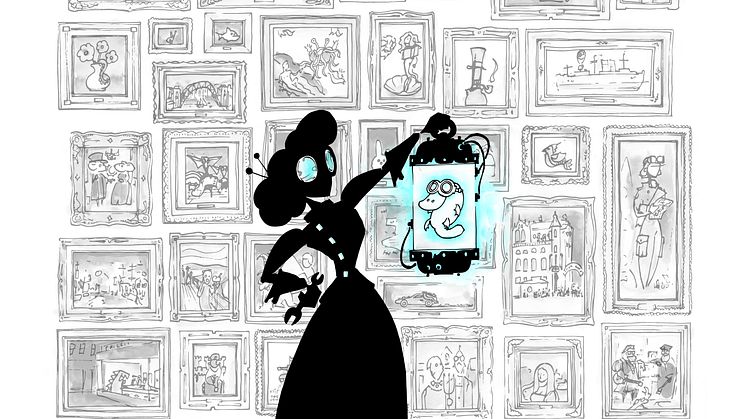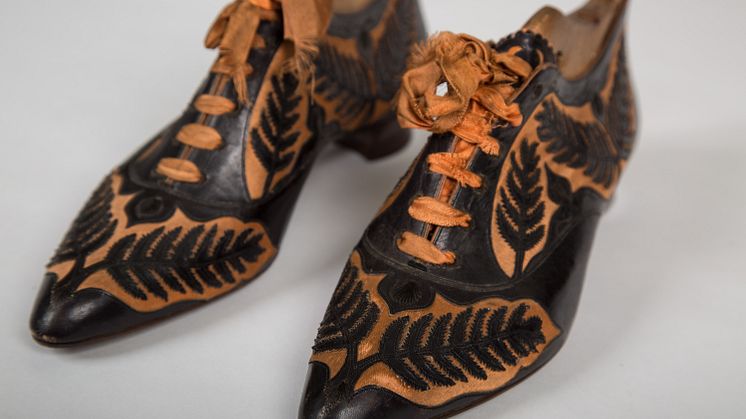Press release -
EXPERT COMMENT: Sylvia Plath: just because she wrote about her life doesn’t mean it’s public property
Claire Nally, Senior Lecturer in Twentieth-Century English Literature at Northumbria University, writes about the relationship between poetry and ethics, discussing the example of Sylvia Plath.
Sylvia Plath’s marriage to Ted Hughes is the stuff of legend. Most literature students come into university with at least a passing knowledge of Plath’s emotive, highly charged poetry, as well as her sensationalised life with fellow poet Hughes. They know about Plath’s suicide in 1963, Hughes’s infidelity with Assia Wevill – and the overwrought passion of their initial meeting in 1956 which Plath describes in her Journals:
That big, dark, hunky boy, the only one there huge enough for me … kissed me bang smash on the mouth and ripped my hairband off, my lovely red hairband scarf.
Plath returned the favour by biting Hughes on the cheek: “Blood was running down his face … Such violence, and I can see how women lie down for artists.”
Less visible is the responsibility that critics have to balance the pursuit of knowledge with an ethical perspective acknowledging that some things we cannot, perhaps should not, hold up for analysis. This is an imperative when the participants are deceased and no longer have a voice of their own – especially when they are survived by direct relatives.
Their daughter Frieda Hughes lives with the legacy of her illustrious but tragic family every day (her brother, Nicholas, committed suicide in 2009), and has clearly articulated her opinion on public sensationalism in the poem “My Mother”, criticising the film Sylvia (2003):
They are killing her again.
She said she did it
One year in every ten
But they do it annually, or weekly,
Some even do it daily,
Carrying her death around in their heads
And practising it.
Much of my current research addresses how we treat the dead in literature and popular culture. We might ask ourselves about the relationship between poetry and ethics, more so when the subjects are deceased – how far is it ethically appropriate to map biographical issues onto a poet’s creative work? I think this is the most pertinent question in terms of the recent rediscovery of letters from Plath to her former therapist, in which the poet alleged domestic abuse at the hands of her husband, prior to her miscarriage in 1962. These are letters to a therapist, probably never intended for public consumption – certainly not for sale on the open market, though they were later withdrawn for legal reasons.
If Plath was with us to articulate her story and give consent it would be another matter. And if Plath suffered domestic abuse, she and her family have my immense sympathy. But this should not be a source of endless sensationalist speculation. Hughes and Plath were difficult, talented people, but they are also someone’s father and mother.
Confessional poetry
Part of the critical dilemma is that Plath wrote confessional poetry: her life is intermingled with her verse. Famously, in Daddy, Plath sees Hughes as a father substitute, and ultimately a seductive, but dangerous and threatening figure: “A man in black with a Meinkampf look/ And a love of the rack and the screw.”
Her poem, The Rabbit Catcher, has been read by critics such as Linda Wagner and Anne Stevenson in biographical terms. All the descriptions of “gagging”, “tearing”, “blinding” register powerfully a physical constraint – and the opening line: “It was a place of force,” is often read as representing physical violence.
In The Haunting of Sylvia Plath (1991) Jacqueline Rose says “force” is a highly ambiguous word but she also explains: “It is hard not to read this [poem] as Plath’s own diagnosis, her judgement, wise after the fact, of the dangerous pleasures she has allowed herself to enjoy.” Nonetheless, we need to be mindful of the impossibility of recovering an authentic and coherent account of this relationship – and nor should we want to. Likewise, Plath’s metaphorical (and contentious) association of Nazism with her father does not fit in with the facts of his biography.
Hughes’s publication of Birthday Letters in 1998, just before his death, broke his long silence about Plath and offered a passionate memorialisation of his first wife. This can be read as a corrective to those who had blamed him for her death, to the extent that her gravestone was repeatedly defaced, and his name removed.
But, until that point, Hughes was fiercely protective of his first wife’s memory – mainly because of their two children growing up in the literary spotlight. For this reason, critics have been plagued by fraught relationships with both writers’ estates, mostly recently in Jonathan Bates’s magisterial biography Ted Hughes: The Unauthorised Life (2015), which was initially supported by Hughes’s widow, Carol, to be later withdrawn. However intellectually frustrating, ultimately a family has the right to protect the memory of their loved ones, even if that means a generation of readers remain unfulfilled, and the literary life left to posterity is incomplete.
Whose life?
Part of the reason why we feel such ownership over this material, I would speculate, is correlated not only with our notions of celebrity culture, but also, how far we have invested the Hughes-Plath marriage with paradigms inherited from 19th-century texts (comparisons with Wuthering Heights are fostered by both poets).
This does not mean the “peanut-crunching crowd” (as Plath referenced in “Lady Lazarus”) have the right to pore over every traumatic detail of what remains a private life. The dangers of this are apparent in Emma Tennant’s fictionalisation of the story, Sylvia and Ted: A Novel (2001), which one one reviewer described as “tasteless but also compelling”. Through the eyes of his mistress, Hughes is rendered as a philanderer who had an affair with a young babysitter, Kate Hands, which – as far as we know – is pure fiction, but which readers inevitably conflate with their “real” lives.
There is a problem with “adopting the stance of the gossip”, as Diane Middlebrook identified in her work on the ethics of life writing – and this is especially the case with critical scholarship. This is not to say that critics should not rigorously explore the work of these writers, but rather, that their unpublished writing needs to be handled with delicacy and respect – the public has no entitlement to information of any kind, and does not own their memory.
The article was originally published on The Conversation. To read the original article click here.
Topics
Northumbria is a research-rich, business-focused, professional university with a global reputation for academic excellence. To find out more about our courses go to www.northumbria.ac.uk
If you have a media enquiry please contact our Media and Communications team at media.communications@northumbria.ac.uk or call 0191 227 4571.










